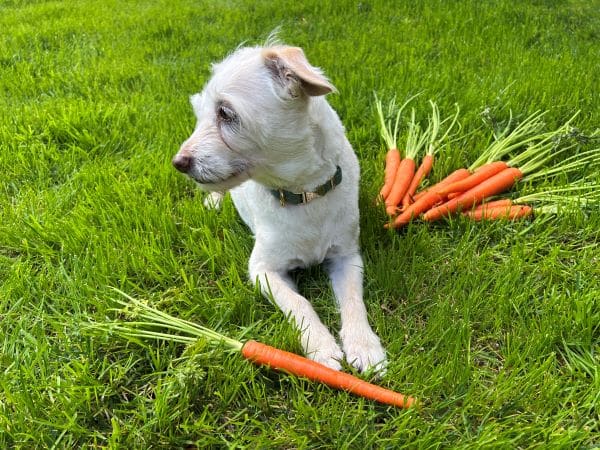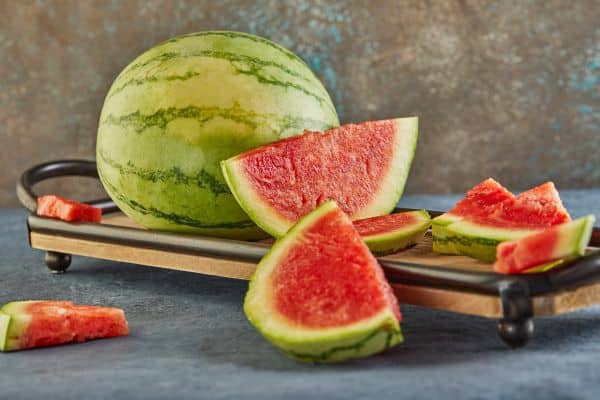Incorporating fruits and vegetables into a dog’s diet enhances overall health, provides essential nutrients, and supports digestive health. Choosing seasonal produce maximizes these benefits by ensuring the freshest supply and optimal nutrient content. This approach not only improves the quality of a dog’s diet but also promotes environmental sustainability by reducing the carbon footprint associated with long-distance food transport and supporting local agriculture.
Contents
- 1 Why Opt For Seasonal Produce?
- 2 Spring Surprises: Fruits And Veggies For Your Dog
- 3 Summer Treats: Refreshing Choices For Hot Days
- 4 Fall Favorites: Nutrient-Rich Options For Cooler Weather
- 5 Winter Wonders: Keeping Your Dog Healthy In Cold Months
- 6 Integrating Fruits And Veggies Into Your Dog’s Diet
- 7 The Bottom Line
Why Opt For Seasonal Produce?

Seasonal fruits and vegetables are at their peak in both flavor and nutritional value, making them excellent choices for canine companions. These items are harvested at the ideal time, ensuring that they contain higher levels of vitamins and antioxidants beneficial for a dog’s health. Opting for seasonal produce also supports local farming, which helps maintain the integrity of local ecosystems and reduces the ecological impact of transportation. Dogs can enjoy a variety of tastes and textures that change with the seasons, keeping their diet interesting and palatable.
The environmental advantages of choosing seasonal produce for a dog’s diet are significant. By selecting local and seasonal fruits and vegetables, the need for long-distance transportation and refrigeration is minimized, reducing greenhouse gas emissions. Moreover, this practice supports local farmers and the local economy, fostering a community-centric approach to shopping and eating. Dogs benefit from this practice, which ensures they receive the freshest and most nutritious feed available, promoting their health and vitality.
Spring Surprises: Fruits And Veggies For Your Dog

Spring offers a bounty of fruits and vegetables that can add variety and vital nutrients to a dog’s diet. Carrots, for example, are rich in beta-carotene which supports eye health, while strawberries provide antioxidants, fiber, and vitamin C. Introducing these foods can boost a dog’s immune system and improve coat health. It’s crucial to introduce new foods gradually to monitor for any adverse reactions such as allergies or gastrointestinal upset.
Another springtime favorite for dogs is peas, which are high in protein and fiber, making them a great addition to any canine diet. They are easily digestible and can be added to regular meals for an extra nutrient boost. As with any new food, it’s essential to ensure that these vegetables are prepared properly; they should be washed thoroughly and served in moderation to prevent overfeeding. Fresh, seasonal produce can make mealtime exciting and nutritious for dogs, paving the way for a happy and healthy spring.
Summer Treats: Refreshing Choices For Hot Days

During the summer, the heat demands hydrating and refreshing food options, making fruits like watermelon an excellent choice for dogs. Watermelon is not only hydrating but also low in calories and provides a source of vitamins A and C. Cucumbers are another good option, offering hydration and a crunchy texture that dogs enjoy. These summer fruits and veggies can be frozen for a cool treat or mixed with regular meals to enhance hydration and nutrient intake during the hotter months.
Another summer staple for canine diets is blueberries, packed with antioxidants and fiber, which promote a healthy heart and digestive system. Serving these small fruits frozen can provide a satisfying and cooling snack. Bell peppers, rich in vitamins A, E, and K, can also be included in a dog’s summer diet. They should be cut into manageable pieces and can add a burst of flavor and color to any meal. Integrating these nutritious summer foods helps maintain an energetic and hydrated pet through the season.
Fall Favorites: Nutrient-Rich Options For Cooler Weather

Fall introduces an array of nutrient-rich vegetables that are ideal for a dog’s diet as the weather cools. Pumpkins, rich in fiber and beta-carotene, support digestive health and can help manage a dog’s weight. Apples, another fall favorite, provide vitamin C and soluble fiber, which can aid in maintaining healthy digestion and cholesterol levels. When introducing these foods, it’s important to remove any seeds and cores to ensure they are safe for canine consumption.
Sweet potatoes are another fantastic fall food for dogs, offering a rich source of dietary fiber, vitamins B6 and C, manganese, and beta-carotene. These can be cooked and mashed or diced into small, chewable pieces to add to a dog’s meal. Similarly, butternut squash, which contains ample vitamins A and C, can help strengthen a dog’s immune system and improve skin and coat health. These vegetables should be prepared without any added spices or seasonings to make them a healthy addition to any dog’s diet.
Winter Wonders: Keeping Your Dog Healthy In Cold Months

Winter demands special attention to a dog’s dietary needs, as colder months can challenge their immune system and overall energy levels. Vegetables like squashes and sweet potatoes can provide necessary calories and nutrients. Squash is a good source of vitamins A, C, and E, which are essential for maintaining good health during winter. These should be cooked to enhance digestibility and mixed into a dog’s regular food.
Brussels sprouts and carrots are also beneficial during the winter season. These vegetables are high in vitamins and minerals that support cellular health and immune function. Brussels sprouts should be cooked and served in moderation due to their potential to cause gas. Carrots, on the other hand, can be served raw for dogs to chew on, which helps clean their teeth while providing nutritional benefits. Proper preparation of these winter vegetables ensures they are a valuable addition to keeping a dog hearty and healthy through the colder months.
Integrating Fruits And Veggies Into Your Dog’s Diet

Proper portioning of fruits and vegetables is essential when adding them to a dog’s diet. These should not exceed 10% of a dog’s total dietary intake to ensure they do not displace essential nutrients from their primary food source. Consulting with a veterinarian can provide guidance on appropriate types and amounts of produce suitable for individual dietary needs and health conditions.
Encouraging diversity in a dog’s diet with fruits and vegetables can significantly enhance their health and enjoyment of food. Simple preparations, such as steaming vegetables and slicing fruits into bite-sized pieces, can make these additions appealing and safe for dogs. Regular consultations with a veterinarian ensure that any dietary adjustments are beneficial and support the dog’s long-term health and well-being.
The Bottom Line
Fruits and vegetables can be a healthy addition to a dog’s diet, offering a range of vitamins, minerals, and fiber that contribute to overall health. Seasonal selections provide freshness and nutritional diversity that can enhance a pet’s enjoyment and health. Always introduce new foods gradually and monitor for any adverse reactions to ensure the dietary changes are safe and beneficial.


